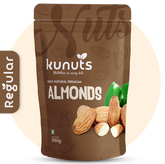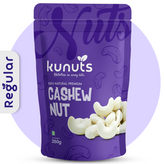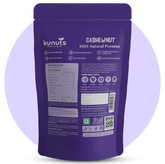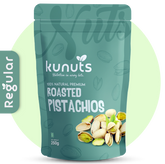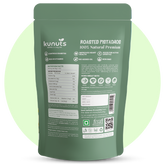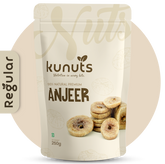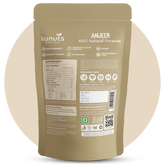Exploring the Nutritional Value of Premium Quality Dry Fruits
Dry fruits have been cherished for centuries, not only for their delightful flavours but also for their impressive nutritional profiles. These nutrient-dense snacks, often called nature's candy, provide various health benefits. Whether looking for a quick energy boost, diet improvement, or overall health, premium quality dry fruits are an excellent choice. Let's dive into the nutritional value of these beautiful treats and understand why they should be a staple in your diet.

Nutritional Benefits Of Common Dry Fruits
Almonds
Almonds contain healthy fats, protein, and fibre. Here are some key nutritional benefits:
- Rich in Healthy Fats: Almonds are high in monounsaturated fats, which are heart-friendly and can help reduce harmful cholesterol levels.
- High in Protein: A handful of almonds makes an excellent snack because of their protein content. It helps in muscle repair and growth.
- Brimming with Minerals and Vitamins: They are rich in calcium, magnesium, and vitamin E, all necessary for strong bones and healthy muscles.
- Antioxidant Powerhouse: The antioxidants in almonds help protect your cells from oxidative stress and inflammation.
Nutritional Profile Of Almonds-Per 100 grams
- Calories: 579 kcal
- Protein: 21.2 g
- Fat: 49.9 g
- Saturated fat: 3.7 g
- Carbohydrates: 21.6 g
- Sugars: 4.4 g
- Dietary fibre: 12.5 g
- Vitamin E: 25.63 mg (171% DV)
- Magnesium: 268 mg (67% DV)
- Calcium: 269 mg (27% DV)
Walnuts
Walnuts are often considered brain food due to their high omega-3 fatty acid content. Let's explore their benefits:
- Omega-3 Fatty Acids: The plant-based omega-3 fatty acid alpha-linolenic acid (ALA) is abundant in walnuts and helps lower inflammation and maintain brain function.
- Heart Health: Adding fibre, antioxidants, and healthy fats to a diet will help strengthen the heart.
- Nutrient-Rich: They also include reasonable amounts of copper, magnesium, manganese, and vitamin B6, all necessary for several body processes.
Nutritional Profile Of Walnuts-Per 100 grams
- Calories: 654 kcal
- Protein: 15.2 g
- Fat: 65.2 g
- Saturated fat: 6.1 g
- Carbohydrates: 13.7 g
- Sugars: 2.6 g
- Dietary fibre: 6.7 g
- Vitamin E: 0.7 mg (4% DV)
- Magnesium: 158 mg (40% DV)
- Calcium: 98 mg (10% DV)
Raisins
Raisins, dried grapes, are tiny but mighty when it comes to nutritional value:
- Natural Sugars: Because of their natural sugar content, they offer a rapid energy boost, making them an excellent snack for sports.
- Fibre: Raisins have a lot of fibre, which promotes regular bowel motions and helps with digestion.
- Iron: They are a good source of iron, which is needed to prevent anaemia and maintain the health of blood cells.
- Antioxidants: Raisins contain polyphenols, antioxidants that promote health and fight off damage from free radicals.
Nutritional Profile Of Raisins per- 100 grams
- Calories: 299 kcal
- Protein: 3.1 g
- Fat: 0.5 g
- Saturated fat: 0.1 g
- Carbohydrates: 79.2 g
- Sugars: 59.2 g
- Dietary fibre: 3.7 g
- Vitamin C: 2.3 mg (4% DV)
- Potassium: 749 mg (21% DV)
- Calcium: 50 mg (5% DV)
Anjeer
Figs, with their unique texture and sweetness, offer numerous health benefits:
- Rich in fibre, Figs are a great way to get fibre in your diet. Fibre helps with digestion and makes you feel fuller for longer.
- Rich in Minerals: They contain calcium, potassium, and magnesium, crucial for bone health and muscle function.
- Natural Sweetness: Despite their sweetness, figs have a low glycemic index, making them suitable snacks for those managing blood sugar levels.
Nutritional Profile Of Figs (Anjeer) - Per 100 grams
- Calories: 74
- Carbohydrates: 19.18 grams
- Sugars: 16.26 grams
- Dietary Fibre: 2.9 grams
- Protein: 0.75 grams
- Fat: 0.3 gram
- Saturated Fat: 0.06 grams
- Vitamin A: 7 µg
- Vitamin C: 2 mg
- Vitamin K: 4.7 µg
- Folate: 6 µg
- Calcium: 35 mg
- Iron: 0.37 mg
- Magnesium: 17 mg
- Phosphorus: 14 mg
- Potassium: 232 mg
- Sodium: 1 mg
- Zinc: 0.15 mg
Dates
Dates are often referred to as nature's energy booster. Here's why:
- Natural Energy Source: Dates are high in natural sugars, providing a quick energy boost.
- Fibre-Rich: They are packed with dietary fibre, which aids digestion and prevents constipation.
- Essential Nutrients: Dates contain important vitamins & minerals, like potassium, magnesium, and vitamin B6, which support overall health.
Nutritional Profile Of Dates - Per 100 grams
- Calories: 277
- Carbohydrates: 75 grams
- Sugars: 66.5 grams
- Dietary Fibre: 6.7 grams
- Protein: 1.81 grams
- Fat: 0.15 grams
- Saturated Fat: 0.01 grams
- Vitamin A: 7 µg
- Vitamin C: 0 mg
- Vitamin K: 2.7 µg
- Folate: 15 µg
- Calcium: 64 mg
- Iron: 0.9 mg
- Magnesium: 54 mg
- Phosphorus: 62 mg
- Potassium: 696 mg
- Sodium: 1 mg
- Zinc: 0.44 mg
Cashews
Apart from the creamy texture, cashews are filled with nutrients.
- Healthy Fats: They are a good source of monounsaturated fats, which promote heart health.
- Protein and fibre: Cashews provide good protein and fibre, aiding in muscle repair and digestion.
- Minerals: They are high in magnesium, copper, and zinc. It is essential for various body functions, including immune support and bone health.
Nutritional Profile Of Cashews- Per 100 grams
- Calories: 553 kcal
- Protein: 18.2 g
- Fat: 43.8 g
- Saturated fat: 7.8 g
- Carbohydrates: 30.2 g
- Sugars: 5.9 g
- Dietary fibre: 3.3 g
- Vitamin E: 0.9 mg (4% DV)
- Magnesium: 292 mg (73% DV)
- Calcium: 37 mg (4% DV)
Adding Dry Fruits to Your Diet
Adding premium quality dry fruits to your diet is simple and versatile. Here are some easy ways to enjoy them:
- Breakfast Boost: Add dry fruits to your morning cereal, oatmeal, or yoghurt for an extra nutritional punch.
- Salads and Main Dishes: For added nutrition, sprinkle chopped dry fruits on salads or use them in savoury dishes like pilafs and couscous.
- Baking: To enhance taste and nutrition, incorporate premium quality dry fruits into baking recipes, such as cookies, muffins, and bread.
- Smoothies: Blend dry fruits into smoothies for a natural sweetener and nutrient boost.
Choosing Premium Quality Dry Fruits
When selecting premium quality dry fruits, quality matters. Here are some tips for choosing premium quality dry fruits:
- Check for Freshness: Ensure the best quality dry fruits are fresh and not stale. They should have a pleasant aroma and a firm texture.
- Look for Natural Options: Choose the best quality dry fruits without added sugars or preservatives. Natural or organic options are usually the best.
- Inspect Packaging: Opt for dry fruits that are well-packaged and sealed to maintain freshness and prevent contamination.
- Buy from Reputable Sources: Purchase from trusted brands or stores like Kunuts as they are known for their quality products.
Bottom Line
The best quality dry fruits are a nutritional powerhouse with many health advantages. They complement any diet greatly because they contain essential vitamins, minerals, healthy fats, and antioxidants. Dried fruits are a great option to increase your energy levels, strengthen your heart, or have a delicious and nourishing snack. You may savour various dried fruits and benefit from their many health advantages by including them in your daily routine. Always select premium dried fruits to obtain the maximum nutritional benefit. Visit Kunuts to buy the best quality dry fruits.


